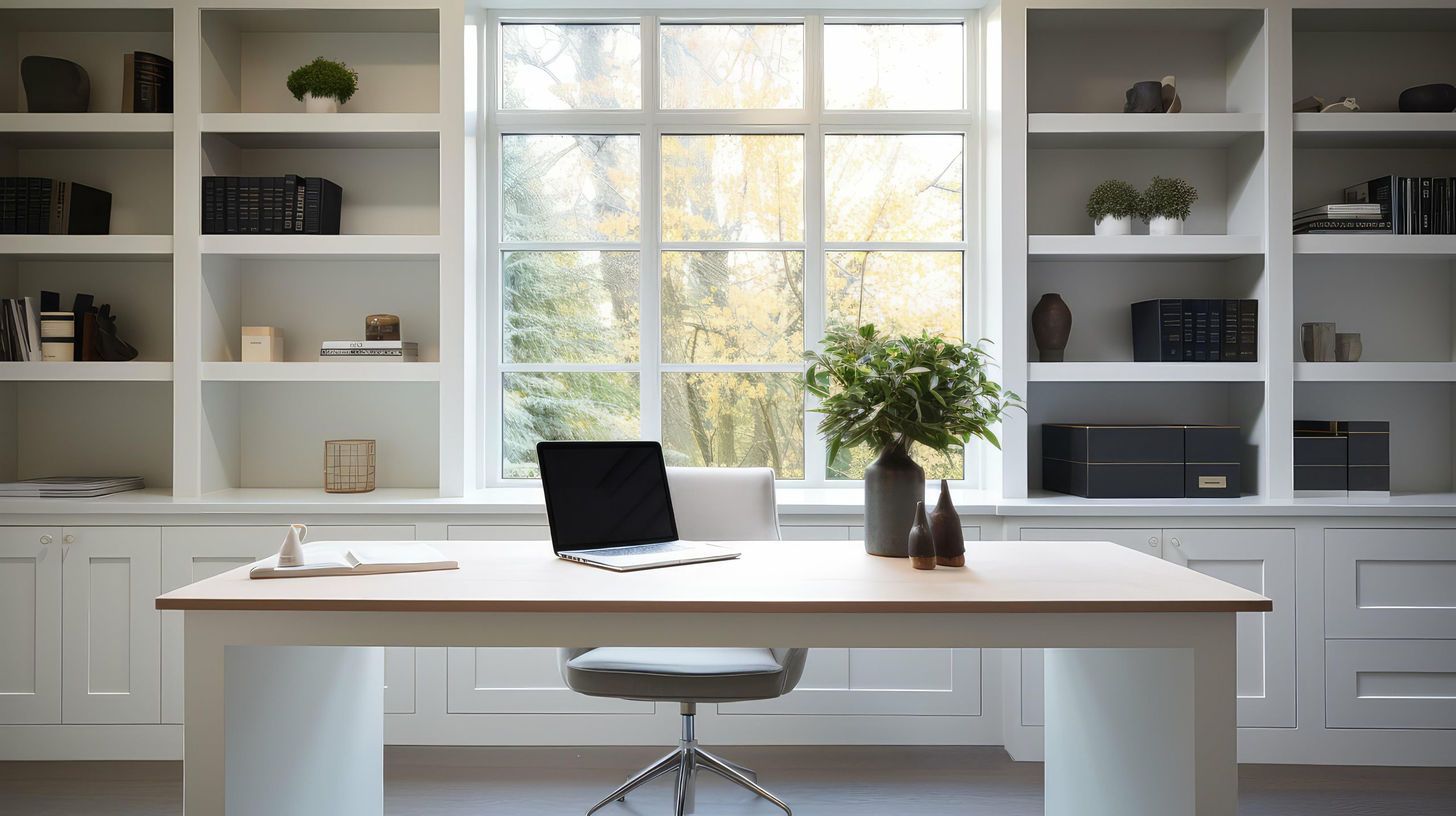Did you know that 68% of modern workplace employees desire flexibility in how and where they work? This is according to the ever-credible IFMA research. Of course, traditional workstations, with their static configurations and fixed cubicles, can’t meet the changing needs of the modern workforce. As a result, organizations are now investing in modular furniture solutions more than ever. But what is the role of modular desks in all this transformation?
Modular Desks Explained
A modular desk is workspace system composed of interchangeable components that can be reconfigured or expanded based on the needs of the user. This desk typically consists of detachable elements like desktop surfaces, storage units, leg frames, cable management systems, and accessories such as privacy panels or monitor arms. This modularity allows users to easily rearrange their setup to accommodate changing tasks, team sizes, or spatial constraints.
Unlike traditional office desks, which are static and often designed for one-size-fits-all use, modular desks are inherently dynamic. They are built to grow or shrink with your organization and support various work styles, whether standing, sitting, collaborating in groups, or working solo in focused silence.
Why Flexibility Matters
The shift toward flexible office furniture reflects broader changes in the way we work. Remote and hybrid work arrangements, hot-desking, and activity-based working models have disrupted the traditional office layout. Workers no longer want to be confined to fixed desks or rigid seating arrangements; they seek variety, comfort, and efficiency.
Modular desks provide this flexibility by enabling quick adjustments without needing new purchases or disruptive renovations. Need a standing desk configuration for a wellness initiative? Just swap out the legs. Bringing in a new team for a project? Combine modules into a shared workstation. Downsizing? Separate the modules and store what isn’t needed. This level of customization empowers businesses to respond swiftly to evolving workplace dynamics.
Cost Efficiency
From a financial perspective, modular desks are a smart long-term investment. Instead of buying new furniture for every organizational change, companies can adapt existing modules to fit new needs. This reuse reduces both costs and the environmental impact of manufacturing and disposal.
Incorporating modular desks into your workspace is just the beginning of creating a dynamic office environment. To complement these versatile setups, consider the seating arrangements that can enhance both comfort and productivity. You can easily explore a wide range of ergonomic options and order chairs online from Tradingzone AG, ensuring that your office furniture is as adaptable as your workflow. By selecting chairs that offer adjustable features and support, you can create a cohesive and efficient workspace that meets the diverse needs of your team. This holistic approach to office design not only boosts morale but also fosters a culture of innovation and flexibility.
Ergonomics and Wellness
Poor posture, limited movement, and too much sitting contribute to physical strain and decreased productivity. Modular desks address these concerns with options for height adjustability, monitor positioning, and personalized configurations.
Because components can be rearranged, each employee can tailor their desk to fit their specific ergonomic needs. This includes sit-stand variations, proper alignment of keyboards and screens, and integrated cable management to reduce clutter and promote a cleaner, calmer workspace. The result is a more comfortable and health-conscious environment, which can reduce absenteeism and boost employee morale.
The Future of Work Is Modular
As workplaces continue to evolve, the demand for adaptable, multifunctional furniture will only increase. Modular desks represent more than a design trend since they are a reflection of the new workplace philosophy that values agility, inclusion, sustainability, and employee well-being.
Organizations that embrace modularity are better positioned to attract and retain top talent, respond to economic shifts, and foster a culture of innovation. In a world where change is constant, modular desks offer the stability of a flexible foundation redefining what office furniture can be.
In conclusion, the flexibility revolution is here, and modular desks are leading the charge. They provide a powerful solution for modern businesses seeking to stay nimble, productive, and people-focused in an unpredictable world. Whether you’re furnishing a new office or recreating an already existing workspace, there is no doubt these desks are an investment in the future of work.






